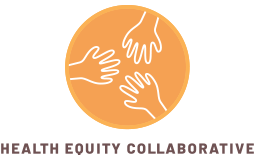19 Feb Reforms Needed to Strengthen Drug Discount Safety Net Program
February 19, 2021
The Health Equity Collaborative, a broad-based group comprised of national civil rights, progressive, and multicultural public health organizations, wishes to emphasize the dire need for reforms to strengthen America’s healthcare safety net. As our health system continues to grapple with COVID-19, our federal programs must deliver equitable access to affordable care for our nation’s underserved and uninsured.
One such effort in need of reform to increase transparency and accountability is the 340B Drug Pricing Program. Created in 1992 with the intent to serve vulnerable patients by providing discounted prescription medicines, the 340B Program is now being used by large corporations – namely contract pharmacies – to generate millions in profits. Instead of ensuring savings and discounts are directed toward expanded access to care for uninsured patients, the 340B Program has been manipulated to benefit large hospital systems and for-profit pharmacies.
Participation in the 340B program has increased substantially in recent years, growing by more than 4,000% between April 2010 and April 2020 with an explosion of the usage of contract pharmacies. Unfortunately, there is no clear-cut evidence that low-income patients have benefitted from the proliferation of these contract-pharmacy arrangements. As it stands, 340B hospitals are not required to pass along savings to patients or present how their programmatic efforts actually help disadvantaged patients. In fact, less than half of 340B entities provide full discounts to low-income, uninsured patients.
Despite the Obama Administration’s historic gains through the Affordable Care Act to help over 20 million people gain insurance coverage, more needs to be done to level the disparities in coverage for diverse communities. Insurance companies use sky-high deductibles, premiums, and ineffective cost-sharing schemes to price people of color out of healthcare. We must seek to better inform our communities of insurance plans’ real cost through easily accessible out-of-pocket cost information in their primary language about coverage prior to enrollment. For uninsured and low-income populations, federal programs that benefit patients instead of profit margins are necessary to ensure all American’s right to good health is upheld.
There is a clear consensus on the real need to lower healthcare costs for vulnerable patients and progressive support to strengthen the federal programs capable of doing so. Greater emphasis on transparency and accountability is necessary to ensure the 340B Program serves vulnerable patient populations instead of enriching hospitals and pharmacies.


